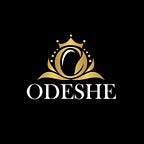The Hidden Immune System Boost from Astragalus
Preview the Researched Benefits Against Infections and Cancer
Our current times have people legitimately wondering if it is possible to boost their immune system. Obviously no one wants a hyperactive or hyper-sensitive immune system, but there is good reason to identify ways to make sure you maintain “textbook”, normal responsiveness and optimal functioning of your body’s natural defences. Considering the numerous classes of immunosuppressant toxins such as phthalates, polyaromatic hydrocarbons (PAHs) like bisphenol A, persistent organic pollutants (POPs) and others circulating all-too-intimately in our modern environment [1] (and in many people’s bloodstreams [2] and urine [3]), this context gives serious validity to the desire to “boost” our immunity back to normalcy. Fortunately there are quite a few vitamins and minerals that have evidence of supporting optimising immune function to normal levels, because they are nutrients involved in the immune system’s reactions and regulation (like vitamins C and D, selenium and zinc) [1]. This article explores the many studies that show that the herb Astragalus (i.e. Astragalus membranaceus) positively influences immune cell signalling and activity, alongside evidence from different trials with animals and humans that show significant anti-infective and anticancer properties.
The herb Astragalus has been used in traditional Chinese medicine for well over 2000 years “…to correct a condition referred to as “spleen deficiency”” [4,5]. This state has been interpreted in Western medical terms as “cellular immune dysfunction” [4,6]. Astragalus addresses cellular immune dysfunction directly by stimulating different immune cells in various ways, to enhance their activity and action, and this stimulating ability of astragalus is attributed to several components of the herb…
>>Read the full, free article on Odeshe.co.uk!<<
Disclaimer: If you have medical concerns, please consult your doctor before implementing the opinions in this article. The research highlighted in this article has not been concluded, and so the properties discussed cannot be extrapolated to any product as yet.
References
[1] A. Tsatsakis, D. Petrakis, T.K. Nikolouzakis, A.O. Docea, D. Calina, M. Vinceti, M. Goumenou, R.N. Kostoff, C. Mamoulakis, M. Aschner, A.F. Hernández, COVID-19, an opportunity to reevaluate the correlation between long-term effects of anthropogenic pollutants on viral epidemic/pandemic events and prevalence, Food Chem Toxicol. 141 (2020) 111418.
[2] Högberg Johan, Hanberg Annika, Berglund Marika, Skerfving Staffan, Remberger Mikael, Calafat Antonia M., Filipsson Agneta Falk, Jansson Bo, Johansson Niklas, Appelgren Malin, Håkansson Helen, Phthalate Diesters and Their Metabolites in Human Breast Milk, Blood or Serum, and Urine as Biomarkers of Exposure in Vulnerable Populations, Environmental Health Perspectives. 116 (2008) 334–339.
[3] Duty Susan M., Ackerman Robin M., Calafat Antonia M., Hauser Russ, Personal Care Product Use Predicts Urinary Concentrations of Some Phthalate Monoesters, Environmental Health Perspectives. 113 (2005) 1530–1535.
[4] K.I. Block, M.N. Mead, Immune System Effects of Echinacea, Ginseng, and Astragalus: A Review, Integr Cancer Ther. 2 (2003) 247–267.
[5] D. Bensky, S. Clavey, E. Stöger, Chinese Herbal Medicine: Materia Medica 3rd Edition, (n.d.).
[6] [Immune function of cancer patients with spleen-deficiency syndrome]. — Abstract — Europe PMC, (n.d.). (accessed November 18, 2020).
